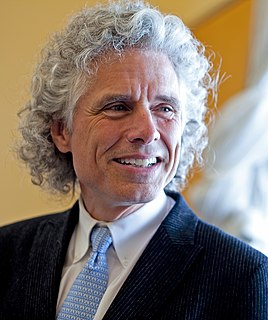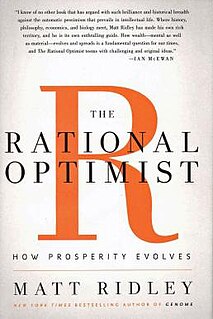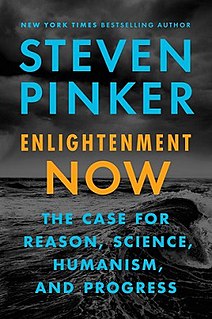
Jurisprudence, or legal theory, is the theoretical study of the propriety of law. Scholars of jurisprudence seek to explain the nature of law in its most general form and provide a deeper understanding of legal reasoning and analogy, legal systems, legal institutions, and the proper application of law, the economic analysis of law and the role of law in society.

Speciesism is a term used in philosophy regarding the treatment of individuals of different species. The term has several different definitions within the relevant literature. A common element of most definitions is that speciesism involves treating members of one species as morally more important than members of other species in the context of their similar interests. Some sources specifically define speciesism as discrimination or unjustified treatment based on an individual's species membership, while other sources define it as differential treatment without regard to whether the treatment is justified or not. Richard Ryder, who coined the term, defined it as "a prejudice or attitude of bias in favour of the interests of members of one's own species and against those of members of other species." Speciesism results in the belief that humans have the right to use non-human animals, which scholars say is so pervasive in the modern society. Studies increasingly suggest that people who support animal exploitation also tend to endorse racist, sexist, and other prejudicial views, which furthers the beliefs in human supremacy and group dominance to justify systems of inequality and oppression.

Steven Arthur Pinker is a Canadian-American cognitive psychologist, psycholinguist, popular science author and public intellectual. He is an advocate of evolutionary psychology and the computational theory of mind.

Mary Rosalind Hursthouse is a British-born New Zealand moral philosopher noted for her work on virtue ethics. Hursthouse is Professor Emerita of Philosophy at the University of Auckland.
Some philosophers distinguish two types of rights, natural rights and legal rights.

Michael Brant Shermer is an American science writer, historian of science, executive director of The Skeptics Society, and founding publisher of Skeptic magazine, a publication focused on investigating pseudoscientific and supernatural claims. The author of over a dozen books, Shermer is known for engaging in debates on pseudoscience and religion in which he emphasizes scientific skepticism.

A Conflict of Visions is a book by Thomas Sowell. It was originally published in 1987; a revised edition appeared in 2007. Sowell's opening chapter attempts to answer the question of why the same people tend to be political adversaries in issue after issue, when the issues vary enormously in subject matter and sometimes hardly seem connected to one another. The root of these conflicts, Sowell claims, are the "visions", or the intuitive feelings that people have about human nature; different visions imply radically different consequences for how they think about everything from war to justice.

The Blank Slate: The Modern Denial of Human Nature is a best-selling 2002 book by the cognitive psychologist Steven Pinker, in which the author makes a case against tabula rasa models in the social sciences, arguing that human behavior is substantially shaped by evolutionary psychological adaptations. The book was nominated for the 2003 Aventis Prizes and was a finalist for the Pulitzer Prize.

Animal rights is the philosophy according to which many or all sentient animals have moral worth that is independent of their utility for humans, and that their most basic interests—such as in avoiding suffering—should be afforded the same consideration as similar interests of human beings. Broadly speaking, and particularly in popular discourse, the term "animal rights" is often used synonymously with "animal protection" or "animal liberation". More narrowly, "animal rights" refers to the idea that many animals have fundamental rights to be treated with respect as individuals—rights to life, liberty, and freedom from torture that may not be overridden by considerations of aggregate welfare.

Why People Believe Weird Things: Pseudoscience, Superstition, and Other Confusions of Our Time is a 1997 book by science writer Michael Shermer. The foreword was written by Stephen Jay Gould.
The concept of the evolution of morality refers to the emergence of human moral behavior over the course of human evolution. Morality can be defined as a system of ideas about right and wrong conduct. In everyday life, morality is typically associated with human behavior rather than animal behavior. The emerging fields of evolutionary biology, and in particular evolutionary psychology, have argued that, despite the complexity of human social behaviors, the precursors of human morality can be traced to the behaviors of many other social animals. Sociobiological explanations of human behavior remain controversial. Social scientists have traditionally viewed morality as a construct, and thus as culturally relative, although others such as Sam Harris argue that there is an objective science of morality.

Why Darwin Matters: The Case Against Intelligent Design is a 2006 book by Michael Shermer, a historian of science. Shermer argues that intelligent design is bad science, that different fields of science converge in supporting evolution, and that religion and science are not in conflict. As a former young Earth creationist, Shermer explores the beliefs and critiques the claims behind it.
The science of morality may refer to various forms of ethical naturalism grounding morality in rational, empirical consideration of the natural world. It is sometimes framed as using the scientific approach to determine what is right and wrong, in contrast to the widespread belief that "science has nothing to say on the subject of human values".

The Moral Landscape: How Science Can Determine Human Values is a 2010 book by Sam Harris, in which he promotes a science of morality and argues that many thinkers have long confused the relationship between morality, facts, and science. He aims to carve a third path between secularists who say morality is subjective and religionists who say that morality is dictated by God and scripture.

The Better Angels of Our Nature: Why Violence Has Declined is a 2011 book by Steven Pinker, in which the author argues that violence in the world has declined both in the long run and in the short run and suggests explanations as to why this has occurred. The book uses data simply documenting declining violence across time and geography. This paints a picture of massive declines in the violence of all forms, from war, to improved treatment of children. He highlights the role of nation-state monopolies on force, of commerce, of increased literacy and communication, as well as a rise in a rational problem-solving orientation as possible causes of this decline in violence. He notes that paradoxically, our impression of violence has not tracked this decline, perhaps because of increased communication, and that further decline is not inevitable, but is contingent on forces harnessing our better motivations such as empathy and increases in reason.

Wild animal suffering is the suffering experienced by nonhuman animals living outside of direct human control, due to harms such as disease, injury, parasitism, starvation and malnutrition, dehydration, weather conditions, natural disasters, and killings by other animals, as well as psychological stress. Some estimates indicate that these individual animals make up the vast majority of animals in existence. An extensive amount of natural suffering has been described as an unavoidable consequence of Darwinian evolution and the pervasiveness of reproductive strategies which favor producing large numbers of offspring, with a low amount of parental care and of which only a small number survive to adulthood, the rest dying in painful ways, has led some to argue that suffering dominates happiness in nature.

The Rational Optimist is a 2010 popular science book by Matt Ridley, author of The Red Queen: Sex and the Evolution of Human Nature. The book primarily focuses on the benefits of the innate human tendency to trade goods and services. Ridley argues that this trait, together with the specialization linked to it, is the source of modern human civilization, and that, as people increasingly specialize in their skill sets, we will have increased trade and more prosperity.

Enlightenment Now: The Case for Reason, Science, Humanism, and Progress is a 2018 book written by Canadian-American cognitive scientist Steven Pinker. It argues that the Enlightenment values of reason, science, and humanism have brought progress, and that health, prosperity, safety, peace, and happiness have tended to rise worldwide. It is a follow-up to Pinker's 2011 book, The Better Angels of Our Nature.
David A. J. Richards is an American constitutional lawyer and moral philosopher, authoring works which integrate interdisciplinary approaches to law and culture. He is Edwin D. Webb Professor of Law at New York University.















